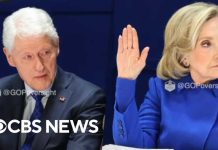
PBS dismantles its Diversity, Equity, and Inclusion department, firing two executives and reshaping its organizational structure in response to a Trump-era executive order.
Key Takeaways
- PBS eliminated its DEI department and fired two executives to comply with Trump’s executive order.
- The decision came after an inquiry from Bari Weiss’ Free Press about non-compliance.
- PBS CEO Paula Kerger cited legal compliance as the reason for the department’s closure.
- The network faces scrutiny over its use of federal funds and hiring practices.
- PBS maintains its commitment to reflecting diversity in programming despite the DEI office closure.
PBS Dismantles DEI Department
In a significant move, the Public Broadcasting Service (PBS) has eliminated its Diversity, Equity, and Inclusion (DEI) department, resulting in the departure of two senior executives. This decision comes in direct response to an executive order signed by President Donald Trump on his inauguration day, mandating the removal of DEI-focused positions and funding in federally supported organizations.
The dismantling of the DEI department has sent ripples through the nonprofit broadcasting service, which oversees more than 330 member stations and reaches over 100 million viewers weekly.
Executive Order Compliance and Legal Considerations
PBS CEO Paula Kerger informed staff of the decision, emphasizing the need to comply with the executive order. Initially, the network considered reassigning the DEI executives to other departments to bypass the order. However, after consulting with legal counsel, PBS ultimately decided to eliminate the DEI office entirely.
“In order to best ensure we are in compliance with the President’s executive order around Diversity, Equity, and Inclusion we have closed our DEI office,” a PBS spokesperson said in a statement.
The decision to dismantle the DEI department followed an investigative piece by Bari Weiss’ Free Press, which questioned PBS’s compliance with the executive order. The network now faces scrutiny from the Department of Government Efficiency (DOGE) and potential legal inquiries. Kerger is scheduled to appear before the House DOGE committee to discuss the network’s use of federal funds. This upcoming testimony underscores the heightened attention on PBS’s organizational decisions and their alignment with federal mandates.
SCOOP: @TheFP asked @PBS about its alleged plans to hide its DEI department. Hours later, it was gone.
Josh Code (@writes__code) investigates: https://t.co/Arb98f15su
— The Free Press (@TheFP) February 11, 2025
Impact on PBS Programming and Operations
Despite the closure of the DEI office, PBS maintains its commitment to diverse programming and inclusive practices. However, the elimination of the DEI department is expected to bring about significant transformations in PBS’s overall operational processes.
The DEI department, led by Loving and Leow, had introduced programs such as “Meditation Mondays” and “Indigenous Healing Circles” to promote employee well-being and teamwork. Financial disclosures revealed that Loving earned nearly $400,000 in 2022, highlighting the significant investment PBS had made in its DEI initiatives and raising questions about its use of taxpayer dollars. PBS’s annual budget is subsidized by federal funds at around 15%, translating to $215 million.
Future Implications
The situation at PBS highlights the broader implications of Trump’s executive order for federally funded organizations. The White House has reinforced the order’s intent to end DEI discrimination in federal agencies and related entities that receive federal funds.
As PBS navigates this transition, the broadcasting landscape watches closely. The network’s ability to adhere to new federal guidelines will likely set a precedent for other publicly funded organizations grappling with similar challenges.









